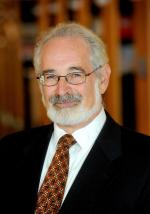State and national smoke-free leaders tell Ky. advocates to focus on local smoking bans because of political climate in Frankfort

Kentucky Health News
More Kentucky localities are likely to see efforts for smoking bans, as a statewide ban appears less likely and leading advocates are saying to go local.
 |
| Stanton Glantz photo: ucsf.edu |
Stanton Glantz, one of the nation’s leading advocates of smoke-free policies, said at the Kentucky Center for Smoke-Free Policy‘s spring conference April 28 that California initially had trouble passing a statewide indoor smoke-free law, which forced advocates to move their efforts to the local level. By the time the statewide law passed, 85 percent of the state was covered by local ordinances.
“I’m glad it worked out that way, because we are really talking about values and social norms and community norms and you just can’t impose that from the outside,” Glantz said during his keynote address. “And so all of these fights that you are having in all of these towns. … In the end, when you win, you’ve won. And the fight itself is an important part of making these laws work.”
Ellen Hahn, a University of Kentucky nursing professor and director of the smoke-free policy center, also encouraged her colleagues to shift their efforts to localities, saying the political situation doesn’t support a statewide law. New Republican Gov. Matt Bevin doesn’t support a statewide ban on smoking on workplaces, saying the issue should be decided locally.
“We are in a very difficult political climate in Frankfort,” Hahn said in her opening remarks.”We all know it. We all recognize it. And while we would all like to see Frankfort do the right thing – and it will someday, I promise – it is not the time to let somebody else do it. It is the time to go to your local elected officials and say we want this.”
Advocates made some headway last year when a smoking-ban bill passed the House, but it was placed in an unfavorable Senate committee and never brought up for discussion. This year’s House version of the bill, in an election year with Bevin in the governor’s office, was dead on arrival.
Glantz, a University of California-San Francisco professor and tobacco-control researcher, looked at the bright side: “You’re in a tough political environment, but you are really doing pretty well.” He reminded the advocates that one-third of the state is covered by indoor smoke-free ordinances, with 25 of them comprehensive and 12 of them including electronic cigarettes. He also commended the Kentucky Chamber of Commerce for supporting statewide and local bans.
“In Kentucky communities with comprehensive smoke-free laws, there was 22 percent fewer hospitalizations for people with COPD,” Glantz said, citing one of Hahn’s studies. “That is a gigantic effect, absolutely gigantic, at almost no cost and it happened right away.”